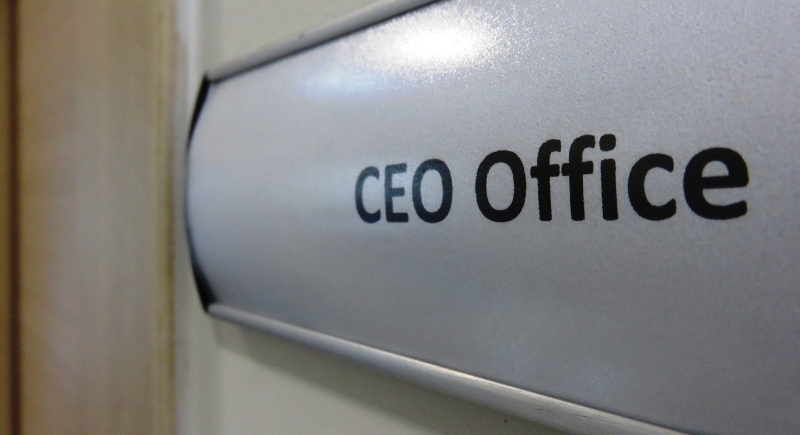15 Career Lessons You Only Learn From a Horrible Job
Nobody dreams of working a nightmare job, but almost everyone eventually ends up in one. But, here’s the twist: they’re often the best classrooms, and they teach hard truths that stick with you far longer than the paycheck. Here are 15 career lessons only a truly terrible job can teach you.
Independence Beats Misery

Credit: Getty Images
Putting up with a volatile boss can drain every ounce of motivation. Studies show that toxic leadership directly contributes to burnout and higher turnover. If the choice is between struggling independently or staying in a miserable role, choose the path that lets you sleep at night and does not undermine your mental well-being.
Customers Aren’t Always Right

Credit: Aflo
It’s a nice slogan, but let’s be honest; some customers can be rude, irrational, or just plain wrong. Real success comes from balancing empathy with reason, not bending over backward to please everyone.
Your Work Might Go Unnoticed

Credit: pexels
Working hard doesn’t always mean you’ll be seen. In many workplaces, it’s often the boldest personality, not the most diligent effort, that draws attention. That’s just how it goes. So instead of waiting for recognition, focus on finding satisfaction in the work itself.
You Can Hate the Job But Love the People

Credit: Getty Images
Sometimes the only thing that gets you through a bad shift is the people beside you. Camaraderie can make the most unbearable job feel tolerable, even fun. Shared misery forms fast bonds—and oddly memorable ones. Those late-night jokes and inside stories might outlast your entire resume.
Ask Better Questions Before Saying Yes

Credit: Getty Images
Bad jobs often begin with vague interviews. Not asking enough questions upfront (about workload, company culture, or team dynamics) can land you in the wrong place. If you want to avoid it next time, get specific: ask where the company is headed, what challenges they face, and how they measure success.
Never Trash-Talk at Work

Credit: halfpoint
Save your rants for trusted friends or a long walk, not the break room. It might feel good to vent at the lunch table, but complaining to coworkers can backfire. Words travel fast. What starts as a harmless gripe can reach management in hours. A 2024 CareerBuilder survey found that 37% of employees who vented publicly later faced disciplinary action.
People Skills Matter More Than Talent

Credit: Canva
Excelling at your job doesn’t always lead to recognition or promotion, especially in environments where likability often outweighs ability. While it may feel unfair, office dynamics tend to reward those who navigate relationships as well as responsibilities. To truly advance, it’s important to pair competence with connection.
Every Team Has a “Rex”

Credit: Getty Images
There’s always that one coworker who cuts corners, stirs drama, or hides a whiskey bottle behind the shelves. You won’t change them. But you can learn from them—what not to do, how not to act, and why accountability matters. Every toxic coworker is a cautionary tale. Let them remind you what it means to be reliable, honest, and not the person everyone secretly avoids.
Dignity Doesn’t Come From the Job Title

Credit: Getty Images
A job title never measures a person’s value. Some of the most genuine, dependable people you’ll meet sweep floors or pour coffee. What matters is how you treat others and the pride you take in your work. Respect is something you build, not something handed out with a paycheck or a nameplate. Kindness always counts.
Efficiency Isn’t Everything

Credit: pexels
Faster isn’t always smarter. Some employers obsess over speed metrics: items per minute, calls per hour, emails cleared. But being fast doesn’t always mean being good. Rushing can hurt quality and kill morale. According to a study by Cornell University, employees under constant speed pressure are more prone to burnout and errors. The lesson? Find balance.
Some Rules Just Don’t Make Sense

Credit: Getty Images
It’s okay to question authority, but it’s also okay to play the game until you can change the rules or leave the board entirely. You’ll run into rules that feel outdated, arbitrary, or just plain absurd, like memorizing hundreds of produce codes while standing for 8 hours straight. Instead of fighting every policy, learn to pick your battles.
Know When to Walk Away

Credit: iJeab
One of the hardest things to learn is when to quit. Staying too long in a toxic job can wear you down and stunt your growth. Knowing your limits is powerful. In fact, the average American waits 13 months too long before leaving a bad job.
Some People Stay Stuck So Don’t Be One of Them

Credit: Canva
You’ll spot them right away: the lifers who drift through their shifts, eyes glazed, routines set in stone. They aren’t lazy—they just stopped caring long ago. If you want to avoid their fate, keep your curiosity alive. Ask questions, try new things, and remind yourself what you’re working toward. Complacency sneaks up quietly if you let it.
A Bad Job Is Still a Good Teacher

Credit: Getty Images
Every awkward moment, difficult coworker, or bad boss, just file them under “experience.” You’ll draw on them later, often when you least expect it. That one time you dealt with a customer meltdown might prep you for leading a team crisis five years later. Nothing’s wasted, even if it stank at the time.
Even Misery Has a Playlist

Credit: Pressmaster
In the middle of heat, sweat, and low pay, music can still save the day. One former factory worker swears the local rock station was the only thing that made the days bearable. This indicates that little joys matter.